
Cogito Ergo Sum (Introduction to René Descartes) European Philosophers YouTube
'Cogito ergo sum', or 'I think, therefore I am', was René Descartes' most famed maxim. But what did he really mean? Aug 24, 2023 • By Luke Dunne, BA Philosophy & Theology "Cogito ergo sum" is a Latin phrase that translates to "I think, therefore I am."
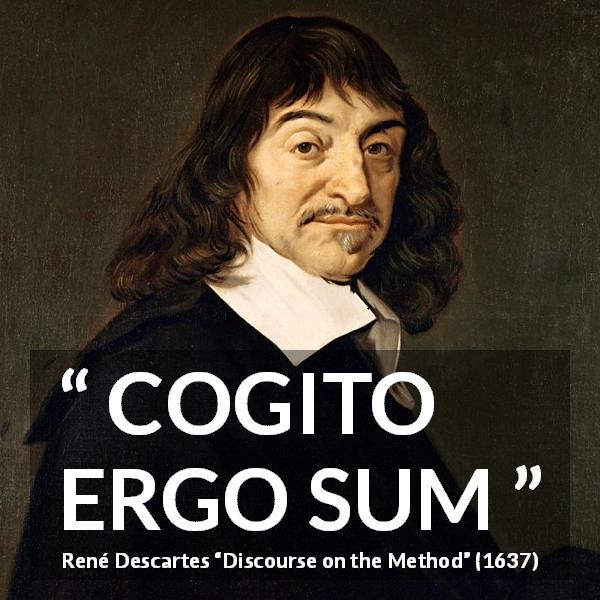
René Descartes “COGITO ERGO SUM...”
Cogito, ergo sum Part of a series on René Descartes Philosophy Works People v t e The Latin cogito, ergo sum, usually translated into English or latin as " I think, therefore I am ", [a] is the "first principle" of René Descartes 's philosophy.
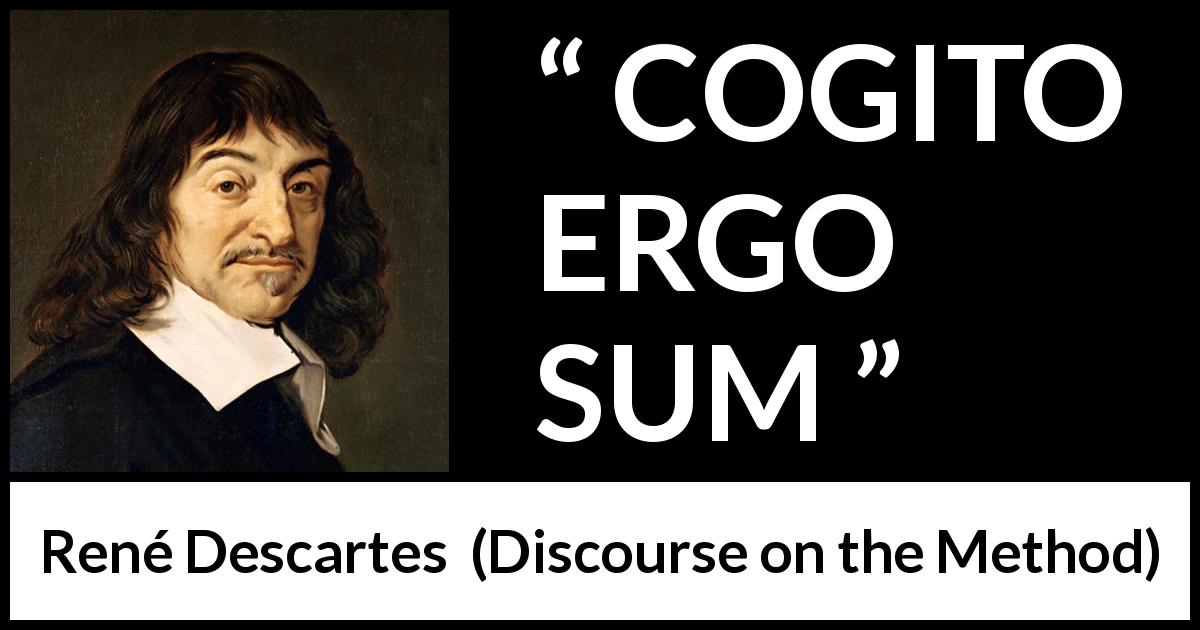
René Descartes “COGITO ERGO SUM...”
Cogito ergo sum, "I think therefore I am", is arguably the most famous and deceivingly simple adage in the history of Western philosophy. The Cogito is important for Descartes' project in the Meditations because it is the 'rock and clay' that he has been seeking as a foundation for his philosophy.

Cogito Ergo Sum Printable Rene Descartes Wall Decor Etsy Classic literature gifts
cogito, ergo sum]—is the first and most certain of all to occur to anyone who philosophizes in an orderly way. 2. 2. The special status of cogito-type beliefs or claims. Some epistemological concepts: 3. i. Indubitable: A person S's belief that p is indubitable if and only if S cannot doubt p. ii. Self-verifying: If S asserts p, then p is.

Descartes and his Cogito Ergo Sum Can we know our selves?
Cogito, Ergo Sum: The Life of René Descartes Richard Watson David R. Godine Publisher, 2007 - Filosofie - 375 pages Rene Descartes was a highly influential philosopher, mathematician, and.

Dan Ariely Quote “Descartes said, Cogito ergo sum“I think therefore I am.” But suppose we are
Cogito, ergo sum, (Latin: "I think, therefore I am) dictum coined by the French mathematician and philosopher René Descartes in his Discourse on Method (1637) as a first step in demonstrating the attainability of certain knowledge. It is the only statement to survive the test of his methodic doubt.

René Descartes Aislamiento y el 'Cogito, ergo sum' Plumas Atómicas
René Descartes (1596-1650) was a French mathematician, natural scientist, and philosopher, best known by the phrase 'Cogito ergo sum' ('I think therefore I am').He published works on optics, coordinate geometry, physiology, and cosmology, however, he is mostly remembered as the "father of modern philosophy".He lived in a time preceding the Age of Enlightenment that flourished in Europe in the.
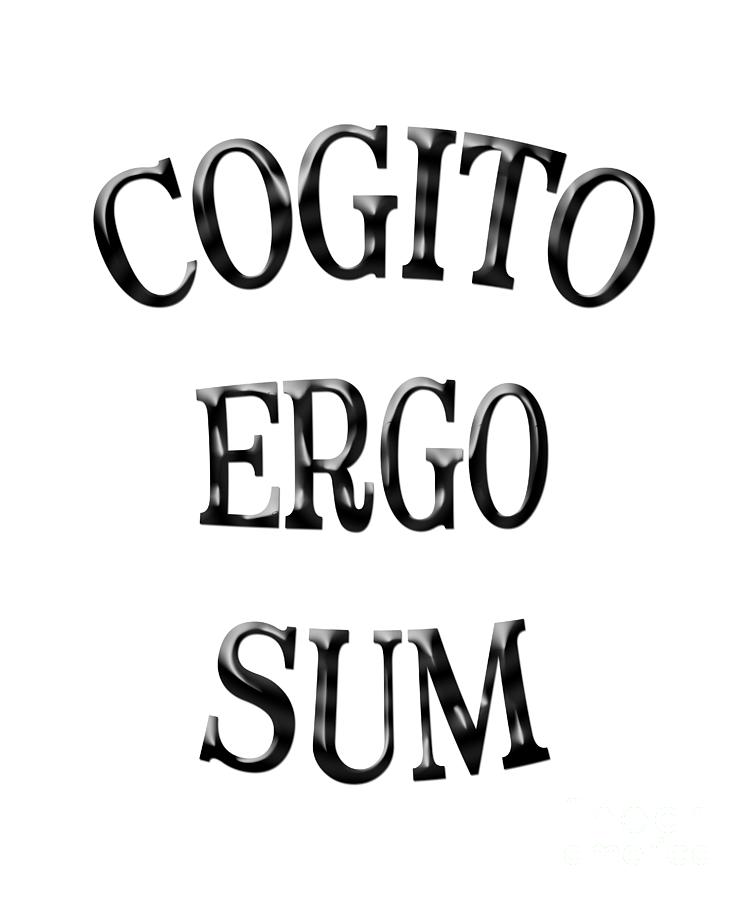
Cogito Ergo Sum by Rene Descartes Digital Art by Arkitekta Art
In cogito, ergo sum..philosopher René Descartes in his Discourse on Method (1637) as a first step in demonstrating the attainability of certain knowledge. It is the only statement to survive the test of his methodic doubt. The statement is indubitable, as Descartes argued in the second of his six Meditations on First Philosophy..

"Rene Descartes "Cogito Ergo Sum"" Sleeveless Top for Sale by CorneliusTul Redbubble
Cogito, ergo sum is the first principle of Descartes's theory of knowledge because he is confident that no rational person will doubt his or her own existence as a conscious, thinking entity—while we are aware of thinking about our self.Even if we are dreaming or hallucinating, even if our consciousness is being manipulated by some external entity, it is still my self-aware self that is.
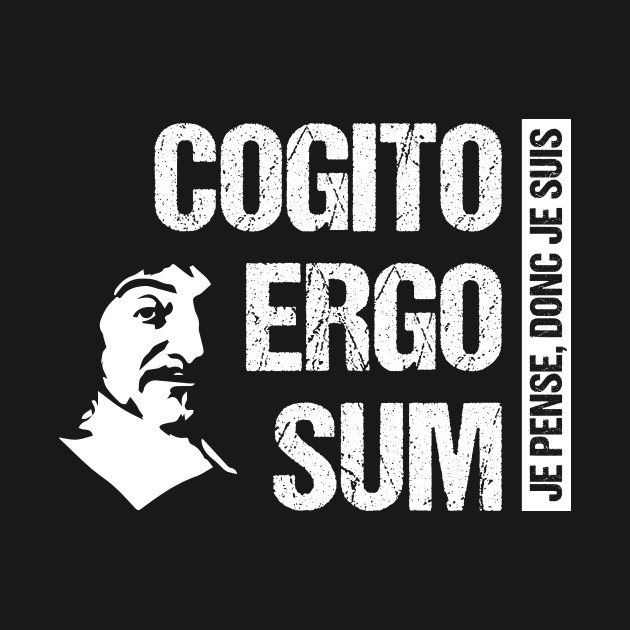
Cogito Ergo Sum Descartes Philosophy TShirt French Quote Cogito Ergo Sum TShirt TeePublic
The Latin phrase cogito ergo sum ("I think, therefore I am") is possibly the single best-known philosophical statement and is attributed to René Descartes. Cogito ergo sum is a translation of Descartes' original French statement, Je pense, donc, je suis.

What René Descartes really meant when he said Cogito Ergo Sum Cogito ergo sum, Rene descartes, Sum
"Nothing comes out of nothing." - Rene Descartes, Principia philosophiae, Part I, Article 49 Principles of Philosophy In the 1620's, René Descartes worked on a metaphysical piece on the existence of God, nature, and soul as well as tried to explain the set of parhelia in Rome.

Cogito Ergo Sum Quote René Descartes Literary Poster / Etsy Latin Quotes, Latin Phrases, Book
Eventually, however, he derived one of the most famous insights in the Western canon, cogito ergo sum ("I am thinking, therefore I exist"—or, more pithily, "I think, therefore I am"): There must be some entity that is doing all of this doubting. Descartes did not view this insight as a falsifiable postulate, but rather as a.
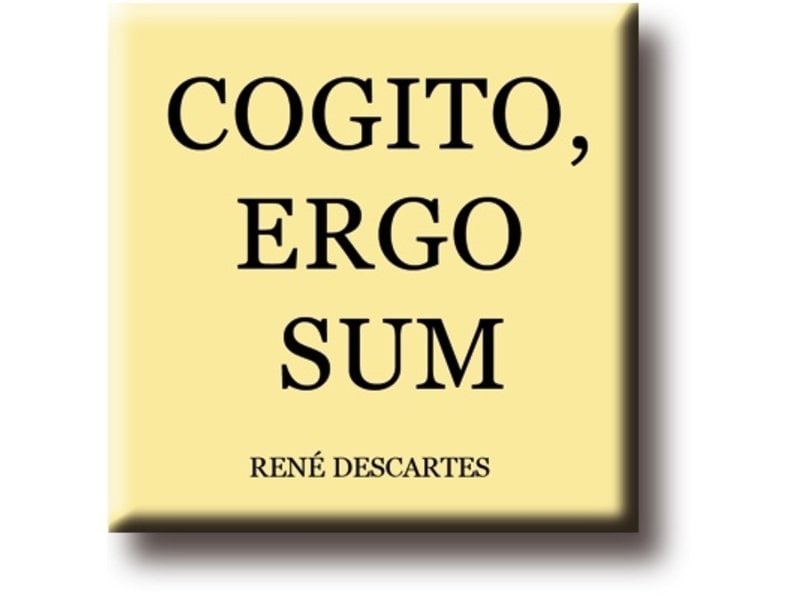
Fridge René Descartes, Cogito, Ergo, Sum
List of abbreviations Introduction and Notes on How to Use This Work Acknowledgments Chronology Descartes' Life and Works Annotated Bibliography ENTRIES Abstraction versus Exclusion Analogy Analysis versus Synthesis Anatomy and Physiology Angel Animal Animal Spirits Aquinas, Thomas (ca.1225-1274) Arnauld, Antoine (1612-1694)
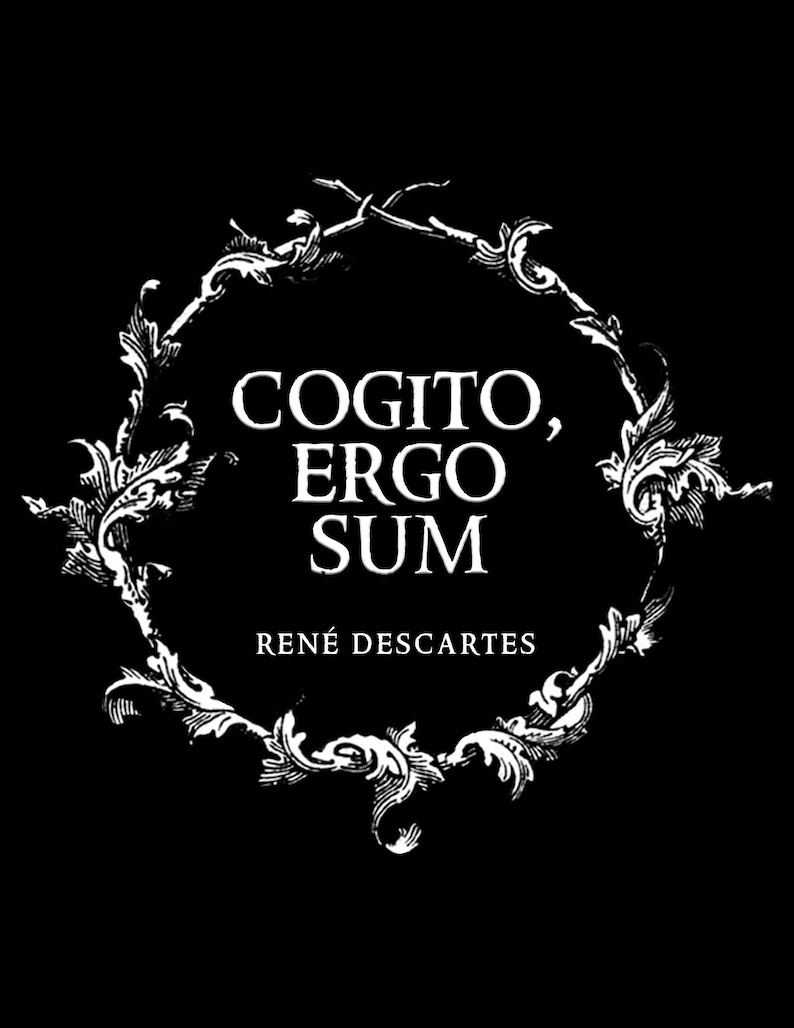
Cogito Ergo Sum Quote René Descartes Literary Poster / Etsy
4.1 Cogito Ergo Sum. Famously, Descartes puts forward a very simple candidate as (what CSM translate as being) the "first item of knowledge [cognition]" (Med. 3, AT 7:35, CSM 2:24). The candidate is suggested by methodical doubt - by the very effort at thinking all my thoughts might be mistaken. Early in the Second Meditation, the.

Cogito, Ergo Sum The Life of Rene Descartes by Richard A. Watson
" Cogito, ergo sum " (Latin: "I am thinking, therefore I exist," or traditionally "I think, therefore I am") is a philosophical phrase by René Descartes, and it is a translation of Descartes' original French statement: " Je pense, donc je suis, " which occurs in his Discourse on Method (1637).

Descartes ‘cogito ergo sum’ YouTube
Descartes' epistemological scheme: "I still live, I still think: I still have to live, for I still have to think. Sum, ergo cogito: cogito, ergo sum" (GS 223). Ironically, Nietzsche inverts the logic in Descartes' famous statement "Cogito, ergo sum" as a caustic way, yet poetic and stylish, of creating his own statement.1 He then.